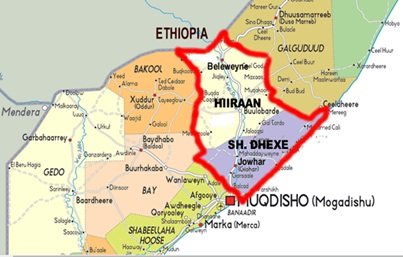Authors: Jamal Mohammed & Prof Abdirisak Arale Nunow
Introduction
A turbulent history of conflict, state collapse and external interventions marks Somalia’s state-building landscape. Many scholars have attempted to understand the reasons for state failure in the country. The country has often been analysed and intervened within a framework of a ‘Failed State’ that cannot perform the basic functions of a state, such as maintaining peace, regulating the economy and delivering service to citizens. However, it is important to treat the language used to define Somalia as a failed state with some degree of caution. This is supported by Peter Halden, who challenged the notion of defining Somalia as a ‘failed state’ and argued for using a nascent state-system ideation (Halden 2008). The conflict in the country emerged from the interplay of geopolitical and historical locally-driven grievances. However, both frameworks need to capture the complexity of the current Somali predicament and the contemporary and historical forces that have culminated in an environment of insecurity, instability and striving.
The key problem with a ‘failed state’ designation is that it equates the absence of a central government to anarchy and thus fails to account for the reality in Somalia where territories in Somalia, such as Somaliland and Puntland, as well as pockets in South-central, are largely stable, informal governance institutions continue to function, and the economy is functional without a state. Nonetheless, despite the semblance of stability in different parts of the country – clan conflicts are still a major cause of concern. The existing analysis of conflict triggers in the country overly focuses on classical problems related to poor leadership and governance dating back to 1969 when Siad Barre toppled the government using a coup d’etat – but little attention has been given to exclusionary resource-based conflicts affecting the society and the state-building efforts.
This study examines the inter-clan conflict between the Hawadle sub-clan (Hawiye clan) and the Surre sub-clan (Dir clan) residing in the Hirshabelle State of Somalia. It will start with an analysis of empirical data obtained during a process of addressing long-standing conflicts between the two communities, then making reference to related literature on the subject, and finally, contextual discussion and possible recommendations on the issue of inter-clan disputes arising from the exclusion of resources access and use of one clan by another.
Authors: Professor Abdirizak Arale Nunow – Associate Professor – Department of Geography and Environmental Studies, Moi University, Eldoret, Kenya
Jamal Mohammed – Lecturer – Department of Political Science, Garissa University & Oxford Brookes University, Associate Researcher – Warwick Interdisciplinary Research Centre for International Development (WICID)
Email: J.A.Mohammed@warwick.ac.uk


Leave a Reply